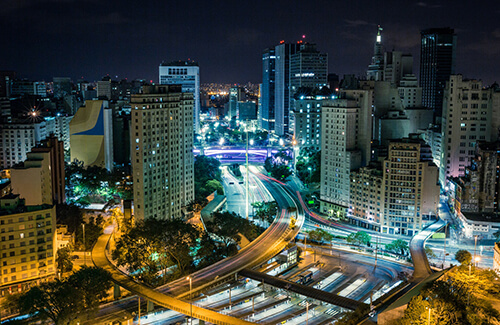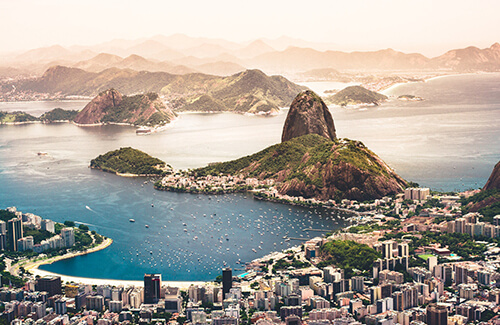Concluding our series of articles addressing Brazil’s economic/political development, and in contrast with our previous couple of publications, in which we highlighted the positive prospects for the coming decade and our view that much of what people customarily see as instability is for us part of the Brazilian democracy learning curve, today we address below which are, in our view, the main challenges ahead when it comes to our country’s development and creation of opportunities.
1 - Public Debt
This was not a hot topic until a couple of decades ago, when Brazil, prior to the implementation of the Real Plan, was an extremely high inflation country with lots of money being printed in a low lasting value currency.
It all changed in 1994, when the successful implementation of the Real Plan led Brazil to adequate levels of inflation, as well as, irrespective of the late 90’s international crises (Asian Tigers, Mexico, Russia), marked the starting point of important structural reforms (notably privatizations and opening to foreign investment) and country’s accelerated development.
This lasted until 2010, when, after two Lula’s administrations which, although not having a privatization focus, did not try to be heterodox when it comes to fiscal policy, continuing the Brazilian trend of yearly primary surpluses in the government’s budget.
Newly elected president Dilma started to loosen the fiscal policy through controversial public accounting (which ultimately led her to the impeachment in the second mandate), which started to reduce the primary surpluses, resulting in our first primary deficit in 2014 (year when she was reelected) and that marked the beginning of the deepest recession ever seen in Brazil that far in 15/16 (almost 10% drop in the country’s GDP).
In general terms, when Dilma took the office the approximate gross deficit of the public administration was around 50% of the GDP. Such figure was increased to almost 75% in just six years. Since then, Brazil has been accumulating primary deficits and the challenge now comes to when we will revert this uncomfortable situation.
Although the Temer administration implemented important measures for public debt control (such as a limitation on government’s spending based on inflation, so called “spending roof”) and the Bolsonaro administration was able to pass an important social security reform in its first year in office, 2020 came with the pandemic and, together with it, the need for the government to come up with a bold package of stimulus to the economy, which is estimated to make the gross public debit skyrocket to almost 100% of the GDP (which puts Brazil in an tough spot of having developed countries debt, however with still poor public services and limited investment).
Although the current Ministry of Finance sticks to the argument that Brazil will come back to its orthodox fiscal policy in 2021, focused on reverting the primary deficits in the next years, the situation puts a question mark on Brazil’s ability to serve this debt, which is almost all in Brazilian currency (Real), but generally indexed to the Selic Rate (the base government interest rate, reviewed each 45 days). Although Selic has been in its historical minimum (at 2%), what helps, the point is that government will need to invest in gaining confidence of the investors that the fiscal policy will be properly dealt with, so that interest rates can remain low (as well as inflation), enabling a virtuous development cycle.
2 - Infrastructure/Logistics
Although this represents a number of opportunities, especially in the mid/long terms, the issue is that Brazil still lacks infrastructure in many areas and this is something that bring the so called “Brazil cost”, generally understood as the cost of running an operation in the country, to higher levels, in comparison with other emerging economies. The same can be said regarding logistics, in which Brazil still heavily relies in road transportation and lacks modal integration.
Current Ministry of Infrastructure seems to be going in the right direction addressing this challenge and working on important projects of concessions, public-private partnerships and privatizations. Much of the efforts were impaired by Covid pandemics, but hopefully adequate focus will be given to the subject in the upcoming years, especially towards attracting investors with attractive opportunities and regulatory stability.
3 - Education
This is definitely one of Brazil’s most daunting challenges. Although having a huge public education system and quite a relevant budget in a GDP percentage, the issue is that Brazil destines most of its resources to superior education (in which universities are generally attended by upper classes’students), in detriment of resources to primary and secondary schools. Although illiteracy dropped to almost nil over the last decades, the issue is that the level of docents and students’ results still are significantly behind other comparable economies, what impacts Brazil’s ability to have a better prepared workforce.
Not to mention the basic problems described above, Brazil also has a big challenge when it comes to internationalization of its professionals. This is estimated that only 5% of Brazilian speak English and, among these, only 20% (therefore 1% of the population) has full professional fluence. This represents another challenge for foreign investors, as the language barrier many times negatively impact day to day operations.
4 - Productivity
Complementing the topic above, another relevant challenge is how to make Brazil and its workforce more productive. In addition to the education hurdles, companies also live among a complex tax and labor environment, which has made Brazil productivity not to increase in relative levels in the past several years. General estimations are that there are required 4 Brazilians to perform a task that one American would accomplish in one hour. With a costly labor legislation, complex tax regime and workforce without adequate education, this will be a complex issue to be resolved.
Current Ministry of Finance indicated the intention to lower taxes levied on payroll and the previous federal administration introduced a labor reform that reduced litigation, but our view is that all issues above need to be tackled and the coordination of this will be challenging.
5 - Country’s Openness
Brazil is still one of the closest economies of the World and this is a huge impediment for our country to be integrated on the global logistic chains. Although many see it as amazing the country’s capacity to produce almost everything locally, the point is that again much of such production lacks productivity and, if there was not by the significant taxes levied on importation, many industries would not prosper.
Brazil exports and imports summed accounts for roughly 20% of the GDP, compared to a figure that generally ranges from 50-60% in OECD countries.
The positive aspect is that there is little room for more protectionism and, in World’s current “de-globalization” and trade wars, Brazil has the opportunity to better explore its opportunities, for example, in agriculture/food chains, where the country’s productivity, differently from most of other areas, is among the highest of the World, if not the highest.
6 - ESG
The Car Wash (Lava Jato) operation was a milestone on corruption fighting and really produced a chain effect in Brazilian business environment, with most of the companies now paying much more attention to compliance matters. In addition, the Brazilian anti-corruption legislation that was introduced is very sophisticated and up to date and even sometimes tougher that similar legislation overseas like the American FCPA and British ABA.
We do believe that such compliance driven approach may pay significant dividends, especially in comparison to other Latin American countries.
Regarding environment, once again Brazil has one of the most sophisticated legislations of the World and also has one of the World’s cleanest energy matrices.
The agricultural area in Brazil is much lower in comparison to other comparable countries and the big players in the agricultural industry are not at all interested in bad environmental practices, as it hurts their businesses, especially when it comes to exports.
The point here is to tackle a couple of issues: (i) especially the federal government has a homework to do when it comes to public relations and communication on how Brazil handles its environmental affairs. As Brazilians, many would tend to agree that much of the international criticism is exacerbated and also embeds influence of an agricultural trade war. However, the confrontational and poor communication approach that has been adopted since last year surely does not help.
We need to work on this asap; (ii) Brazil needs to continue working on enforcing its legislation and protecting its natural resources, as we do believe is the case in most of the areas. However, transparent communication and an adequate response to eventual trade war and or groups of influence campaigns must be better dealt with.
Should you like to further discuss the subjects above and how we can help you navigate Brazil business environment, please do not hesitate to contact our team (This email address is being protected from spambots. You need JavaScript enabled to view it.).


